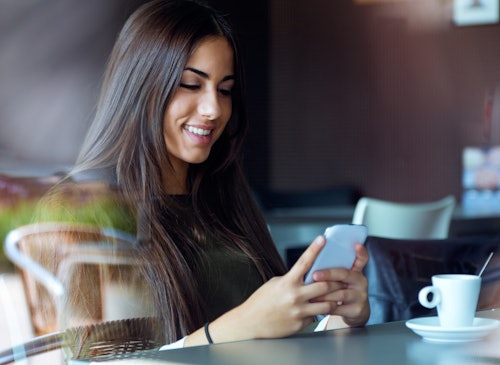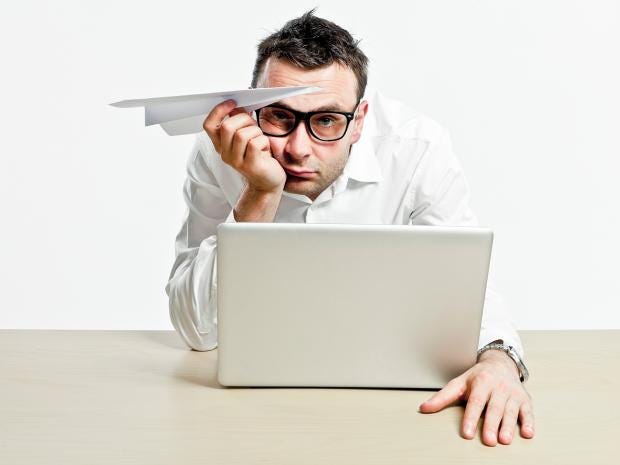
People on dating apps are boring - not
Apologise: People on dating apps are boring
| Chinese singles dating free sites in usa | Young life dating club game |
| Dating app purchase | Free dating sites a |
| Girl flake on dating site found a different guy | Most popular dating apps in utah |
| Dating app for teens / yellow | Dating totally free to message back |

What is the future of dating apps?
In an age of fluidity will apps need to be so specific? Will Instagram open a dating feature? Will we even use them at all in ten years?
At first glance, the world of dating apps feels as boring and trite as say, the questions Hinge asks you when you join: “Do you like getting caught in the rain?”. Tinder, Grindr and Bumble still dominate the market, no new groundbreaking technology has shaken up the way we meet people (still waiting on my VR girlfriend) and – apart from a few unique gimmicks, like making you try to pick one song that entirely summarises your character (Raya) – the biggest apps out there are still pretty similar to one another.
Over the years, some apps have admittedly tried to shake things up a bit, or cater to more specific audiences; my mum joined Tindog, an app for connecting dog owners – until someone asked her for nudes, J-Swipe sets up Jewish people while Muslima does the same for Muslims, and there have even been apps where you can conjure someone to give you a hug. On the one hand, it feels good that there’s an app for everything, but on the other, it feels weird that we’d still want this in a time when we’re talking more about romantic freedom and acceptance than ever before. As gender fluidity and sexual fluidity increase, do we need such specificity in our dating apps? Will the distinction between say Tinder and Grindr eventually disappear? And will we become less rigid in what we’re looking for all-round?
According to experts, if we want to know how dating apps will evolve, we need to look at how our current behaviour in the realm of sex and dating is starting to change. Here, we asked some regular daters and experts for their predictions about how tech will better get us laid in the future.
APPS WILL CONNECT US MORE IRL
“I’ve never used dating apps,” says Harrison who is 19 and living in Leeds. He says meeting up with strangers online doesn’t appeal to him, he’d rather meet someone through friends, at parties, on nights out, or at uni. “I do know some people that use Tinder but lots don’t. I think dating apps give people an excuse to stay at home rather than meeting people IRL and putting themselves at risk of rejection. It desensitises people my age from real human interaction because people spend too long talking behind a screen... I reckon that’s why they’re not that popular anymore.”
According to Holly Friend, at forecasting agency The Future Laboratory, Harrison is pretty representative of teenagers today. Among internet-raised Gen Y and Z, we’re seeing a kickback against interaction in the virtual space, she explains. “The ethos of younger generations is really centred around the idea of having real-life experiences when it comes to dating,” says Friend. “People want a bit of serendipity put back into the dating experience, like before apps existed, when you would meet someone in a club or bar.”
“I definitely see that people want to meet up IRL, and maybe connect romantically through these social events rather than purely on the apps. It’s just way less pressure than going on a date with someone.” – Kelly Rakowski, Personals
In some ways, we can already see this happening. Tinder just launched “festival mode” to connect users at UK music events, like British Summertime at Hyde Park, All Points East and Lovebox. Friend points out how The Standard hotel in New York created an app called The Lobby, for people staying with them to create a chat-room-esque profile, “so you talk to each other, then maybe meet in one of the social spaces in the hotel,” and how the poly and kink app Feeld runs “experiences” like screenings and talks.
Kelly Rakowski – who is developing an app version of her popular Personals Instagram account, which connects queer women and nonbinary people through old school written ads – thinks that more and more, we’ll just use apps to arrange real-world events, and then see who we fancy when we get there. Through Personals, she’s seen people connecting to start zine workshops, “dyke soccer” clubs, and queer reading groups. “I definitely see that people want to meet up IRL, and maybe connect romantically through these social events rather than purely on the apps. It’s just way less pressure than going on a date with someone.”
DATING APPS WILL GET SAFER
Aside from all the ongoing horror stories we hear about catfishers, nude leaks, and other crimes that happen via dating apps, there are nearly 70 countries around the world where it’s illegal to be LGBTQ+. With this in mind, dating apps need to think about how to protect their users – especially when we know that some have been used to entrap gay people in places like Russia and Egypt.
One idea that’s being rolled out is Tinder’s new feature “traveller alert”, which is a notification that pops up to protect and inform LGBTQ+ people when they turn the app on in a country that has discriminatory laws. Users who identify as LGBTQ+ will no longer automatically appear on Tinder when they open the app in these places. Once the alert is activated, they can choose whether or not to remain hidden while in that location or opt into making their profile public to connect with people. In the latter case, if a user has added sexual orientation or gender identity to their profile, the app will automatically remove this information to “safeguard users from law enforcement agencies and individuals who may target them”.
As for Grindr, a spokesperson from the app says: "We are currently testing video calls in select markets in order to give users the option to connect via video within the Grindr app. We recognise not all of our users live in large urban areas and connecting in person is more difficult. At Grindr, the safety of our users is a core value and as such we take a number of measures to protect our community: from providing a Safety Guide to assist users when interacting with others online, banning user accounts that violate our Community Guidelines, redesigning our in-app reporting process, to obscuring geo-hashing data in countries where it is unsafe for the LGBTQ+ community.”
DATING APPS WILL GET MORE INCLUSIVE
As well as becoming more sensitive to the physical safety of its LGBTQ+ users, last month, Tinder rolled out yet more options for sexual orientation (you can now choose three), and continue to partner with GLAAD after the More Genders update (which added more gender options), a collaboration that has, say Tinder, now led to more than 80 million new matches among users. With half of 18-24 year olds identifying as something other than totally heterosexual, and often with many labels at once, apps will need to keep up.
Aiming not to box in its users in – tbh, you could use it to find a friendly group of people to visit your dungeon or just a third boyfriend – Feeld has focussed on inclusivity since the start. According to Ana Kirova, who is Product Lead at Feeld, the app has offered members more than 20 gender identities and 20 sexuality options since its first incarnation as 3nder in 2014 and claims that they update the list as new terms emerge. “We also allow people to change their sexualities or gender identities in the product as they explore it because we believe sexuality – and even gender identity – are things that are prone to change or to develop over time,” says Kirova. Hence why, on Feeld, you can go back to people you’ve previously discounted for free, in case you have changed your mind or your taste has evolved.
The algorithm also does not show you more of what it thinks you might like, as with most apps, because that ends up reinforcing social prejudices through algorithmic bias. Instead, Feeld shows you the people closest to you while offering a minimum number of filter options. It makes you wonder why, in a time when racism, misogyny and fatphobia on dating apps is still so rife, other apps would let you box tick ethnicity, or provide an algorithm that shows you people who it deems “attractive”. Which brings us to...
WE MIGHT NOT BE SO SHALLOW WHEN WE USE THEM
The world of dating apps is notoriously shallow, most work with the idea of saying “yes” or “no” to someone in seconds, off of the basis of a photo. Apps have gone as far as to rank you on how hot you are or count your Instagram followers.
Some dating apps have launched campaigns to try to combat the aforementioned problem of racism, misogyny and fatphobia, like Grindr’s “Kindr” campaign, banning discriminatory users and putting out some celeb-y videos that promote inclusivity. “I thought we were going to see more of that but we haven’t,” comments Friend. “I find that really surprising because we see still so much hate on these apps and brands really need to find solutions.”
Rakowski’s Personals app, which is currently in beta testing

0 thoughts to “People on dating apps are boring”